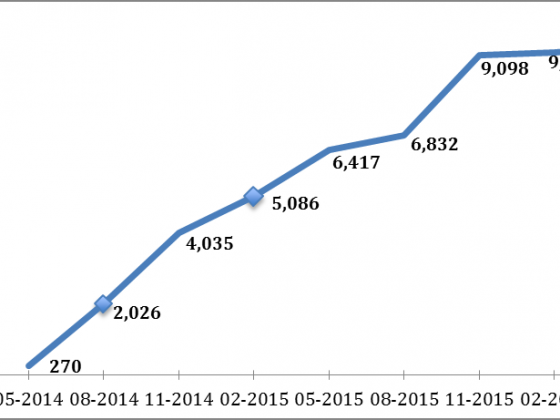(PONARS Policy Memo) To ask whether Ukraine is a client state of the United States might seem provocative. In the opinion of some, being a “client state” is negative, implying that the state is no longer free, particularly in the international arena—akin to being a colony. This negative connotation resonates with the message coming from the Kremlin (and Russian propaganda) that Washington is somehow in control of Ukraine, dictating its policies and each and every move. This is certainly not the case. But while Washington does not have diktat over Ukrainian affairs, Ukraine has greatly depended on U.S. support over the past three years, with both positive and negative effects. More pressure may be needed on Ukrainian leaders to accentuate the positive aspects and avoid the negative ones.
A History of Seeking Influential Allies
Ukraine is substantially dependent on the West. But this patron certainly does not always get its way in Ukraine’s decision-making, which would be detrimental to Ukraine’s positive development. Prior to 1991, each and every attempt to create a secure and autonomous Ukrainian state was coupled with a delicate, often painful, and frequently failing balancing act. It constantly looked to an influential ally for support. There were times when searching for an influential ally brought positive results and there were times when it did not. However, time and again, building a Ukrainian state failed due to internal differences and infighting—regardless of foreign “interventions.”
The period since 1991 is the longest sustained time that Ukraine has enjoying statehood and freedom. During this stretch, Ukraine experienced its fair share of troubles and needed external assistance. The United States has stood out as the most influential and most committed partner and provider of aid to Ukraine.
U.S. Support for Ukraine 1991-2014
In the early years, it was Washington that pressed Ukraine to denuclearize. But it was also Washington that provided substantial financial packages. The United States gave security assurances to Ukraine when it cast away its nuclear weapons (regardless of what one thinks about the meaning and efficacy of those assurances). Through turbulent years of economic turmoil, social instability, political crises, and other challenges—the United States has stood and offered help. U.S. assistance was crucial for fighting astronomical inflation, stabilizing the national currency, and proceeding with needed privatization (leaving aside some of the controversial and dubious features of that process). Closing down the Chernobyl nuclear power station for good and providing its secure shelter were also done with substantial American support.
In the early years of Leonid Kuchma’s presidency, Ukraine needed U.S. assistance badly, and Kuchma went to great lengths to get it. However, he also set the standard for abusing U.S. trust and assistance. He made all the right noises, promising to deliver reforms and liberalization, but instead his regime deteriorated into a non-democracy. He maintained a bright façade but was cynical and corrupt in the shadows. The positive dynamics of his proclaimed strategic partnership with the United States—the Kuchma-Gore Commission, the Ukraine–NATO Charter, and so forth—yielded to bleak times that included journalist Georgiy Gongadze’s murder, the Kolchuga controversy, the Tape Scandal, and irregularities in elections, to name a few.
What kind of “lessons were learned” by both sides? Ukrainian leaders saw that you can pretend to be “good” and get U.S. assistance, services, and benefits, while simultaneously sticking to petty and nasty agendas. Over time, this approach led to fallings out of trust and favor and a loss of assistance from the West. Washington policymakers saw that you cannot let yourself be endlessly fooled and must instead verify that policies are actually implemented, make assistance conditional, and not let money pour into the abyss of corruption.
The Orange Revolution of 2004 was a new major test for Ukraine–US relations. Again, Ukraine was in need of U.S. support. The George W. Bush administration was happy to provide assistance because Ukraine delivered on promises of radical reform and change. However, positive momentum was soon wasted—rhetorical statements were not followed by much-needed systemic reforms and the window of opportunity for change was shut. “Ukraine fatigue” overtook Washington (and many capitals in the West) because Ukraine disappointed.
Ukraine as Client State after the Euromaidan
Since the start of the Euromaidan, the United States has shown a keen interest in resolving the Ukrainian political crisis. The Obama administration entered the situation reluctantly—it did not want to insert itself into the middle of the crisis—but felt obligated to take an increasingly strong position as the situation became more urgent. Despite stories and Russian propaganda to the contrary, Washington was not particularly supportive of the revolutionary scenario and was not looking for regime change. Once former Ukrainian president Viktor Yanukovych abandoned his post, there was no way back, for anyone. Moving forward toward Western standards was the clear choice.
The United States extended a helping hand to the new government in Kyiv and sought to help heal the wounds of the domestic crisis. It provided assistance to get a governance system functioning. Kyiv’s new leadership direly needed support to counter claims of “illegitimacy” from Russia, all the while Ukraine’s economic situation was leading it into default and collapse. Ukrainians felt that Moscow was looking for ways to avenge the success of Ukraine’s “revolution of dignity” and they felt that to buttress the fragility of the new Kyiv government, U.S. support was crucial. Thereafter, the degree of Kyiv’s dependence on the United States grew exponentially, especially among Ukrainian leaders—U.S. support was (and is) critical to their success.
Washington’s sway grew so large that when Russia seized Crimea, the Kyiv leadership asked the United States what to do. The advice from Washington was unambiguous: do not engage in military hostilities. This advice was adhered to (granted, Kyiv might very well have come to the same decision) but Washington’s advice mattered enormously. Memory of the Russia-Georgia war in 2008 was in everyone’s mind. In that case, the Georgian leadership engaged in military hostilities to defend the country’s territorial integrity from Russia, but Russia used this pretext to inflict larger harm on Georgia, while the West stood by and did not do anything.
In the post-Euromaidan era, the United States has given assistance to Ukraine—diplomatic, financial, and military (excluding lethal weapons). Ukraine was injured and faced a number of colossal challenges. Kyiv had to deal with the Crimea situation, hostilities in its East, carry out reforms, and fight corruption. Ukraine’s degree of dependency on the United States during this period is without precedent in Ukraine’s contemporary history.
Ukraine has effectively become a “client” state of the West, and of the United States, in particular. U.S. Vice President Joe Biden was frequently involved in Ukrainian affairs. He made direct appeals to Ukrainian elites on a number of occasions, being highly forceful about reforms and eradicating corruption. Former U.S. ambassador to Ukraine Geoffrey Pyatt was also deeply involved in Ukrainian affairs, often on a daily basis.
Is Being a Client State Good or Bad for Ukraine?
The United States has clout, but is it good or bad? The biggest problem lies in the halls of the Ukrainian government, where politicians have a long history of appealing to the United States when it served them well. This kind of behavior continues at many levels of officialdom. Ukrainian politicians like to cast themselves in a positive light while trying to demean their political opponents in the eyes of Washington, even when issues are minor. For example, there was a conflict between the head of the Odessa regional customs administration, Yulia Marushevska, and the head of Ukraine’s fiscal service, Roman Nasyrov. During their quarrel, Marushevska appealed directly to the U.S. ambassador for help to provide her department with gasoline (of all things). She got the gas. Client states do not necessarily display such behavior, but it supplies a negative way in which Ukraine brings upon itself higher-power interventions. This is how medieval nobles fought, often resorting to calls for the king to impose a resolution. Certainly, the U.S. presence in Ukraine should not become a substitute for governance by Ukrainians themselves.
Most of the pressure coming from Washington, however, pushes Ukraine in the right direction. This “clienting” is good in the short run. But Ukraine needs to efficiently run itself, and there is no doubt that Washington wants to see Ukraine be self-sustaining. The country has also changed for better since Yanukovych’s departure. However, reforms have not been fully implemented and corruption persists. Ukraine’s political elites often resist radical and necessary changes, pushing back on Washington pressures. Apparently, some Ukrainian leaders think Ukraine is “too big to fail” and have the expectation that Washington (and Europe) will keep providing assistance and writing checks to Ukraine regardless of actual progress in implementing reforms and fighting corruption. Unfortunately, much of the power in Ukraine is still in the hands of the old elite, and as “guardians” of it, how are they to dismantle it?
The Need for “Sticks,” Not Just “Carrots”
In recent months, there has been a spike in the number of people calling for the West to consider not just positive incentives (the proverbial “carrots”) but also negative ones (“sticks”) in order to really impact Ukrainian politicians. I support the use of “sticks.” They must know that time is precious and substantial reforms are needed now. One method discussed is for narrow and targeted Western sanctions on non-performing Ukrainian politicians. Obviously this is a delicate situation because the United States cannot appear to cut its support for Ukraine (as a European country that has been the victim of unprovoked external aggression).
Ukraine’s challenges—territorial integrity, external threats, corruption, and systemic reforms—should be seen as inter-connected (holistic). The United States, alongside the many forward-thinking Ukrainian activists, should keep applying pressure on leaders in Kyiv. This is a type of patron-client relationship that is more teamwork than detrimental dependency. Ultimately, Ukraine must be able to manage its own affairs. This is an outcome that the United States encourages.
Volodymyr Dubovyk is Associate Professor in the Department of International Relations at Mechnikov National University, Odessa, Ukraine.
[PDF]










